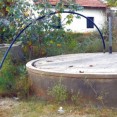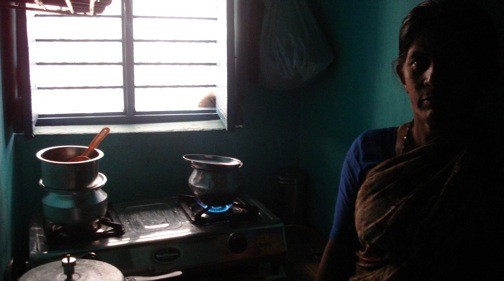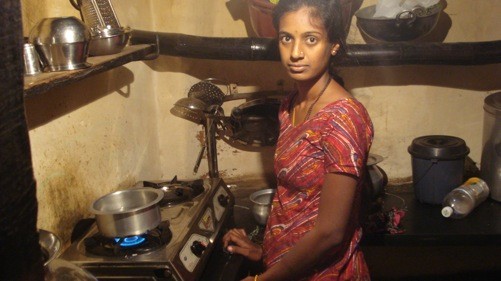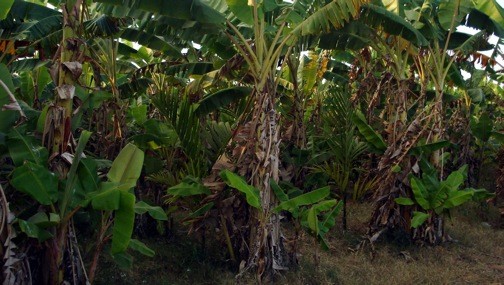In Trelew, Chubut, the students from the local Technical School have installed a new wind-solar hybrid system, capable of providing opportunity for energy self-sufficiency in the rural community.
Converting banana plant waste to cooking fuel in India
To address these problems, the following steps were undertaken:
- The establishment of banana plantations applying micro-irrigation and other sustainable farming methods
- The development of a local biogas distribution system based on the anaerobic treatment of waste from the banana plantations
Firstly, a water supply system was constructed in Gundigere village, which required the drilling of two wells and the installation of a corresponding water pump and pipes. Four banana plantations were cultivated using resource-efficient farming methods. Adjacent to the plantations, two floating drum biogas digesters were installed.
Waste from banana cultivation (mainly the banana stalks and additional stems from the plants) is now being chopped up and fed into the biodigesters. The biogas produced by this method is distributed through two networks of pipelines (one for each biodigester) to 70 village households.
From the initial harvesting of bananas in January 2013, approx. 63 tonnes of bananas were sold, yielding approx. €9,500 in net revenues for the project. Biogas distribution to households started in September 2013 and, by the end of the year, all 70 households were connected to the biogas network.The results to date allow for the assumption that the pay-back period of the initial investment will be seven years. Furthermore, the project has demonstrated that it is possible for a biogas system to be based only on stem waste from banana plantations, despite the fact that the methane generation potential of these parts of the plant is much lower than that of the fruit and peel.

The project concept has good potential for replication, although the availability of water resources could be a significant physical constraint.
Additional information on the project is available on the webpage of the SEPS project: Value-addition to food crop processing: Converting banana plant-waste to cooking-fuel (SEPS 7)




